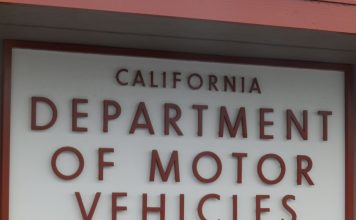‘Would you ever consider an abortion?’
Those were the words that fell from his mouth as we drove home
from a weekend of parties and sightseeing in Santa Barbara.
‘Would you ever consider an abortion?’
Those were the words that fell from his mouth as we drove home from a weekend of parties and sightseeing in Santa Barbara.
No, I wasn’t pregnant. We were talking about freedom of choice on this drive, the freedom to vote for whom you chose, to marry whom you wished, and somehow it had come around to reproductive rights.
“I’m pretty emphatically in favor of a woman’s right to choose,” I said. “I would hope no one used it as a means of birth control, but what if a woman is raped or her baby is going to be severely retarded? What if she’s just not ready to have a child or what if she would be excommunicated from her family and friends? Myself? I don’t know if I could ever do it.”
We drove in silence for a few moments, and then he said, “Good.”
I thought that was the end of what could potentially be a heated argument. The topic of abortion is one of the most heated debates in American social and political life, and I didn’t really want to talk about it for too long.
I care for my boyfriend. I didn’t want to jinx a good thing, but he continued.
“I’m pragmatically in favor of abortion,” he said. “I mean, it’s better than the back-alley alternative, but I still think it’s wrong.”
Easy for you to say, I thought. You’ve never faced the specter of “what if?” alone.
On average, there are 1.3 million abortions per year in the United States, according to statistics gathered by the Alan Guttmacher Institute, a reproductive rights and public policy research group based in New York and Washington, D.C.
In California, 26 percent of all pregnancies end in abortion, a slightly larger figure than the national average of 21 percent.
According to current figures, nearly half of all American women have received an abortion in their lifetimes, a figure startlingly out of step with national opinion.
According to a USA Today-CNN Gallup Poll in May 1999, just 16 percent of Americans believed abortion should be legal for any reason at any time during pregnancy, while 55 percent believed it should only be legal to save the life of a mother or in cases of sexual battery such as rape or incest.
Another poll conducted two years later found that the number of “pro-life” Americans had risen by 10 percentage points between 1996 and 2001, up to 43 percent of the nation, while the number of “pro-choice” Americans had declined to 48 percent from 56.
Nationwide, the abortion rate has also decreased dramatically (as much as 46 percent), but industry professionals attribute that not to a shift in social values, but the availability of so-called “morning after” pills, which prevent sperm from being able to fertilize a woman’s egg, and medical abortions in which pills like the much-debated RU-486 are used to induce miscarriage.
What does all this data mean? Perhaps the country is ready for a shift in the pendulum. George W. Bush is in line to nominate as many as four new Supreme Court justices in his second term, including one to replace the ailing William Rehnquist, and political onlookers feel he may be intent on installing pro-life justices.
And while a federal court struck down a petition by Norma McCorvey, formerly known as Jane Roe, to reconsider the Supreme court’s stance on Roe v. Wade, the current political climate could spell trouble for the pro-choice movement.
Abortion activists won’t go down without a fight, though.
“Planned Parenthood’s position is to basically keep abortion safe and legal for all women in our nation,” said Gayle Tiller, public affairs director for Planned Parenthood Mar Monte, which serves Santa Clara and San Benito Counties. “If a Supreme Court justice should be nominated who is vastly pro-life, we would be out there in the street opposing them.”










